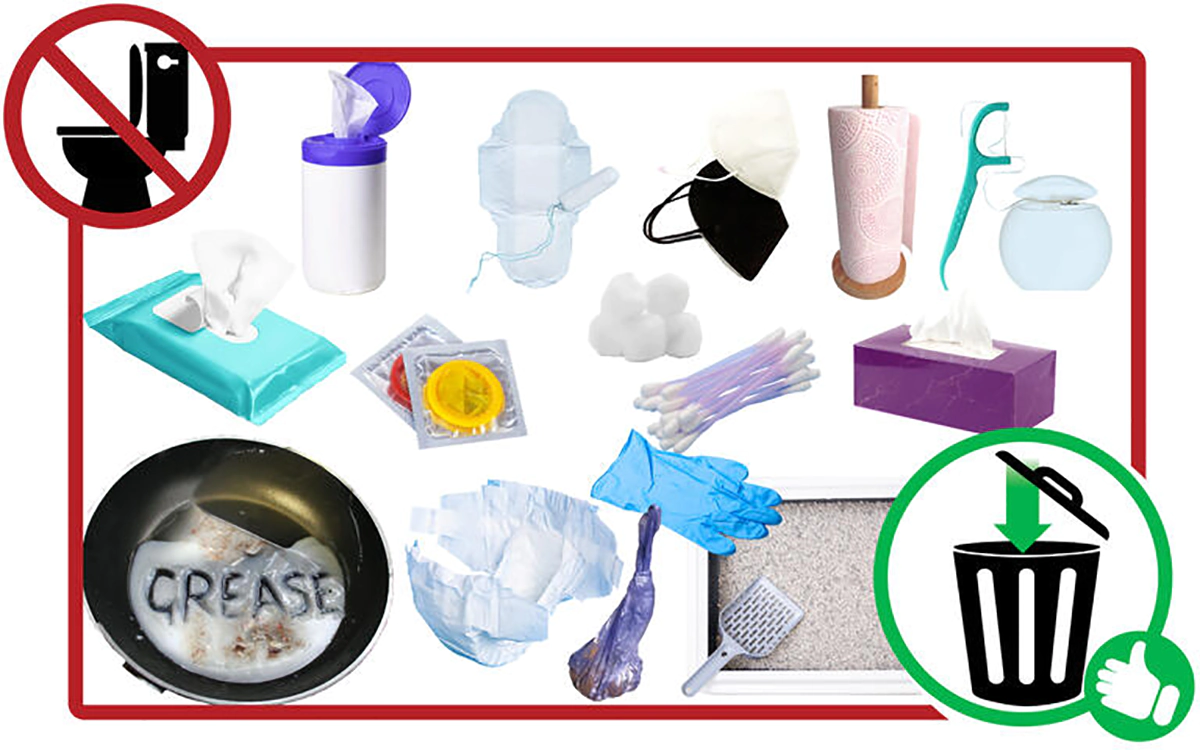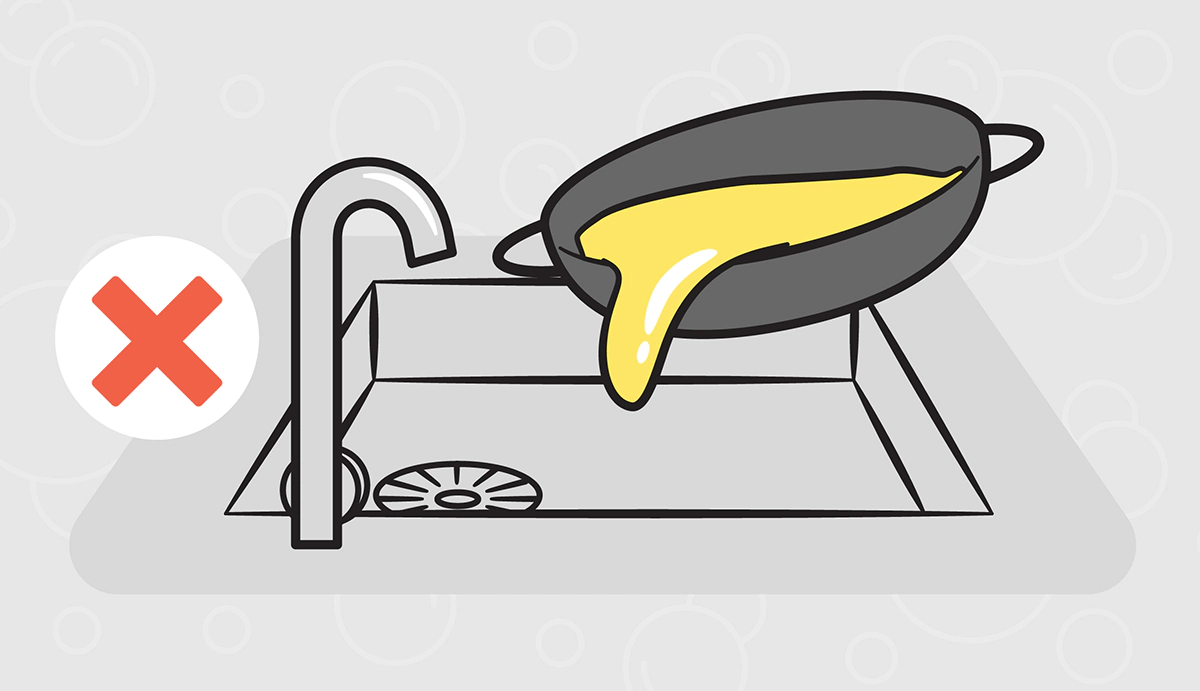1. Grease, Oils, and Fats
When grease, cooking oil, or melted fats are poured down the sink, they may look like harmless liquids. But as they cool, they solidify and stick to the inner walls of your pipes. Over time, this build-up restricts water flow and creates stubborn clogs that are difficult and expensive to remove.
Safer Disposal Options
Instead of pouring grease down the drain, collect it in a heat-resistant container, let it cool, and throw it in the trash. Another eco-friendly option is to reuse small amounts of cooking oil for seasoning pans or recycle it at designated collection centers.
2. Coffee Grounds
Coffee grounds don’t dissolve in water. Instead, they clump together, especially when mixed with grease or soap scum, forming thick sludge inside your plumbing. This can quickly lead to slow drains or complete blockages.
Alternative Uses for Coffee Grounds
Don’t toss them in the sink — coffee grounds can be reused as natural fertilizer for plants, as a deodorizer in your refrigerator, or simply added to your compost bin.
3. Pasta, Rice, and Starchy Foods
Foods like pasta, rice, and potatoes absorb water and swell even after they’ve been cooked. If they end up in your drain, they expand further, clogging pipes and forming a sticky paste that traps other debris.
Prevention Tips
Always scrape leftovers into the trash before rinsing dishes. A sink strainer is a simple but effective tool to catch starchy foods before they slip down the drain.
4. Eggshells
Although some people think eggshells sharpen garbage disposal blades, this is a myth. Eggshell membranes can wrap around the grinder components, while the shells themselves break into small particles that stick to grease and create sediment in pipes.
Proper Ways to Dispose of Eggshells
Dispose of eggshells in the trash or add them to your compost. Crushed shells also make excellent garden fertilizer and pest repellents.

5. Flour and Dough
When flour mixes with water, it forms a sticky paste. In pipes, this paste behaves like glue, catching other particles and hardening into a clog. Dough has the same effect — it expands and sticks to pipe walls.
Best Practices for Disposal
Sweep or wipe flour and dough scraps into the trash before washing your dishes. For larger amounts, consider composting.
6. Paint and Chemicals
Pouring leftover paint, solvents, or harsh cleaning chemicals down the drain is extremely dangerous. They not only damage your pipes by causing corrosion but also contaminate water supplies, harming aquatic life and the environment.
Approved Disposal Methods
Always follow your municipality’s guidelines for hazardous waste. Many communities offer drop-off locations or special collection days for paints and chemicals. Store materials safely until they can be disposed of properly.
7. Medication and Pills
Flushing expired or unused medications may seem convenient, but it sends pharmaceutical chemicals directly into the water supply. Wastewater treatment facilities cannot filter all substances, which means these chemicals can end up in rivers, lakes, and even drinking water.
Safe Drop-Off Locations
Instead of flushing, take unused medicine to a pharmacy, hospital, or community drug take-back program. These facilities are equipped to dispose of pharmaceuticals safely without harming the environment.
Protect your pipes before it’s too late — schedule a sewer line inspection with our licensed professionals today.







